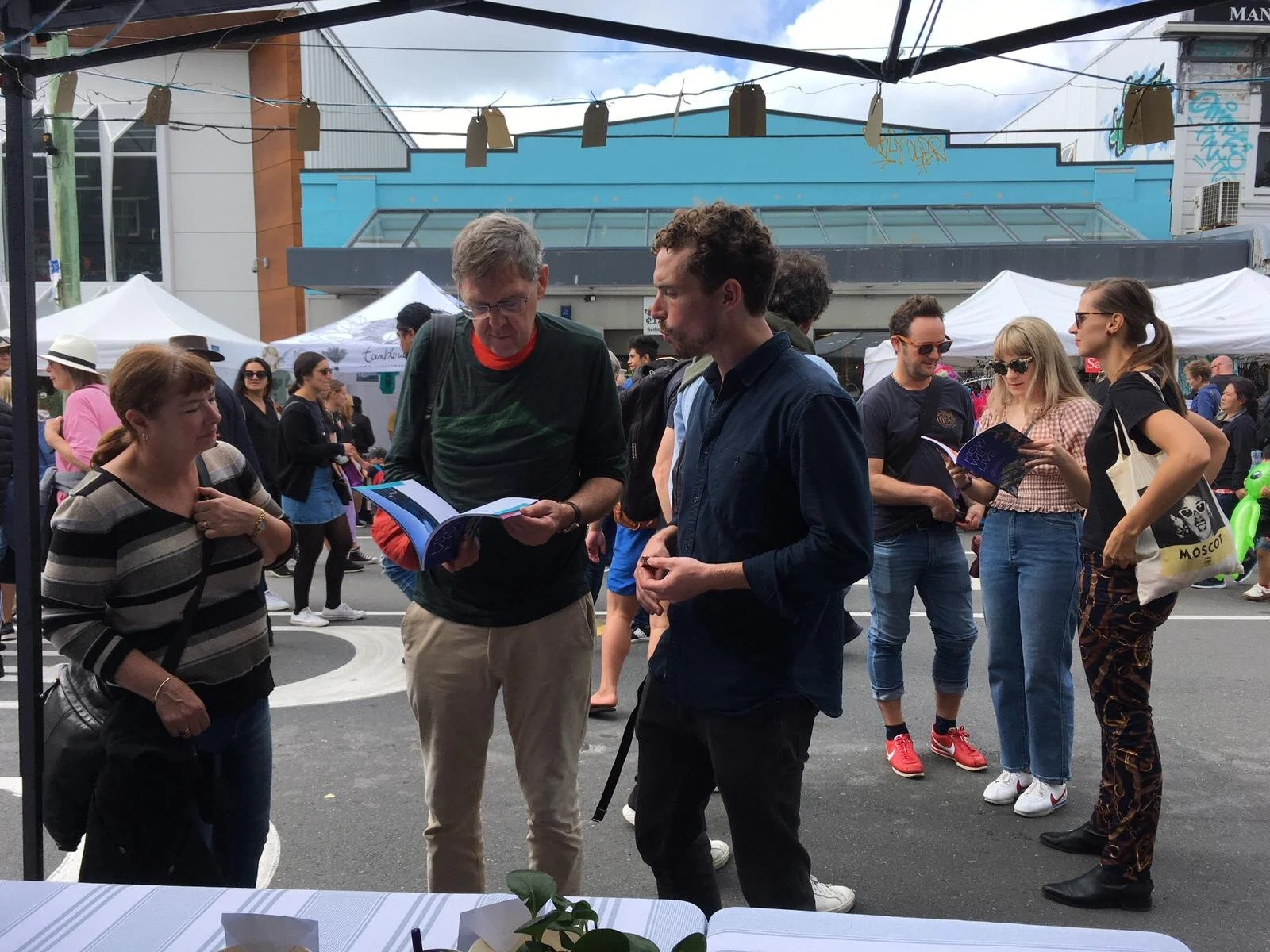How We Live, not just bricks and mortar.
Public gather at the launching of How We Live in Wellington.
Housing and sustainability experts from across New Zealand welcomed the publication of the How We Live report, launched by Motif, last Sunday. It articulates how the combined efforts of our team of five million can create good solutions to the housing crisis, if we all work together.
Download it here: www.HowWeLive.co.nz
Ben Preston, from Motif, says the document gives hope.
“It looks at the alternative ways this problem has been successfully tackled overseas. It is not going to gather dust. We intend for it to be a spring-board to drive, educate and shine the light on alternative options.”
The Urban Advisory’s, Greer O’Donnell, one of the champions of this work says, despite the positive discussion with officials and ministers, there remains concern, by all parties, that things are not moving as quickly as they could or should be.
“This is the latest in a long line of reports that the Government has access to, or has commissioned, and there has been positive discussion with some officials and Ministers about the need for change recently.”
“We’re hoping that this report will be the catalyst needed for parties to work collaboratively with community-led initiatives.”
O’Donnell says in order to make the multitude of globally proven solutions mainstream in New Zealand, all participants in the housing ecosystem need to be open and supportive of different models and start working together more formally. This includes iwi, central and local government, arm’s length bodies and relevant agencies, investors and funders across Aotearoa.
“People are suffering, and while solving the housing crisis is a complex problem, there are proven ways to deliver affordable housing for low to moderate income earners, and many entrepreneurial experts working to bring them to life.“
“This emerging sector is organised. We are constructive. And, we have global, local, academic and industry knowledge.”
She says too often people trying to enable their own housing solutions, report back that they’ve tried everything.
“The truth is that they have not. Other options have not been widely available, or known about.”
Examples detailed in the report are: community land trusts, cooperative housing, co-housing, and Papakainga which can sit alongside conventional housing options, like state housing, independent ownership and rental.
“Non-traditional solutions are no more complicated than status quo solutions, they are just new to many in New Zealand.”
Imogen Schoots, spokesperson for The Housing Innovation Society (THIS) and former official for Panuku, Auckland City Council’s development organisation says she herself has been “a trapped” renter for over two decades. But, that living overseas, in collective housing environments, gave her an appreciation of their value.
“I know first-hand there is a more secure, stable and affordable way to live than private renting.”
She says her personal choice of starting a family has been put on hold due to there being no foundation of security.
“We need more options and more affordability much faster than the current pace. There is a growing majority of us who will never be able to save enough to afford to buy a place on our own. This has consequences for us all.”
The report requests resources be allocated to working in collaboration with collective housing experts in communities to accelerate these solutions. It calls for government, at all levels, to become active participants in community-led teams that overcomes the political, economic, social, financial, technological, legal and environmental barriers preventing these initiatives from getting off the ground. In addition, to support education initiatives so these options can be positioned alongside what’s currently available, and bring them to market quickly.
The general public are clearly signalling they’re not prepared to continue waiting, all the while the range of non-traditional housing solutions remain relatively unknown. Now is the time for collective housing options to be on the lips of, and involve, every New Zealander in a need of a home — and support infrastructure, including financial resource, to be put in place to enable them to happen.
If you would like further information or additional quotes from industry and market experts who are passionate about and contribute to the “How We Live” movement, please feel free to contact the people listed below;
TUA is an urban strategy and design consultancy that works around the motu to help rethink our neighbourhoods, towns and cities.
Greer O’Donnell - Director
The Housing Innovation Society is an advocacy, education & connection body dedicated to supporting innovation in housing development, incl; community land trusts, papakinga, cooperative housing, and co-housing.
Imogen Schoots -
Spokesperson
hello@thehousinginnovationsociety.com
021 089 74698
www.thehousinginnovationsociety.com/
Society for Cooperative Housing New Zealand (SCOOPHNZ) is enabling a cooperative housing pathway to provide housing choice.
Deb Hallam -
Spokesperson
027 4875705
CLOSER is a “Connected Living Opportunities” Social Enterprise focused on Regeneration, through cooperatively owned cohousing villages.
Bobbie Cornell - Co-founder / Director
022 8889993
www.facebook.com/ConnectedLivingOpportunities
Venture CentreNZ is a Venture Activation Centre supporting Impact Entrepreneurs to bring solutions to market and place-based and challenge-based communities to collaborate on regeneration and resilience projects.
Jo Allum -
Co-Founder / Director
027 5266549
Upcoming relevant Events:
Community Housing Aotearoa Conference 9/10/11th June
CoHo Hui plus associated exhibition 22nd June
Housing Summit (Tauranga) Early September
Affordable Housing Summit: Pre Conference - 27 November, Conference - 28–29 November 2019


